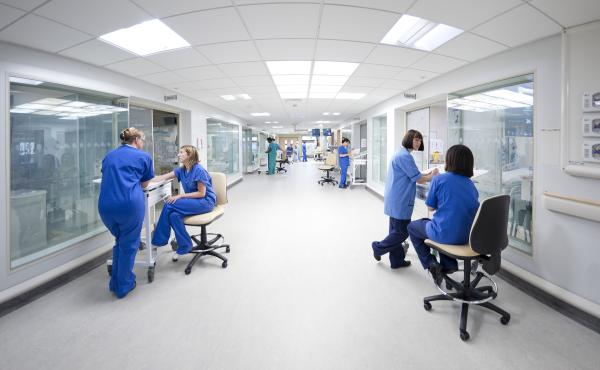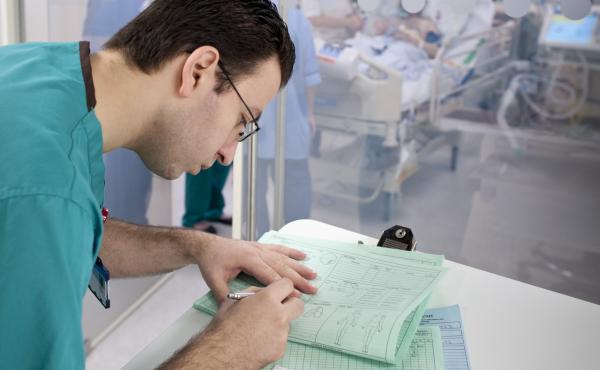Becoming a College FAQs
Do you have questions about the future college?
This FAQ section includes new answers as well as answers from previous publications, and so we have included the dates and sources.
Do you have additional questions that you would like to see answered here? If so please get in touch.
Your Questions Answered
A Faculty is generally, but not always, a department within a larger organisation.
In our case, FICM is dependent on our host and lead College RCoA for our governance and ways of working. The RCoA Board of Trustees does not include members of the FICM Board but has responsibility for FICM’s finances including FICM’s membership fees.
This arrangement has supported FICM’s establishment well, but it restricts the FICM Board’s direct ability to make decisions for the benefit of the specialty and its members. Becoming a College of Intensive Care Medicine (CICM) will ensure a future CICM Board of Trustees has full control over finances, governance and operations. This, in turn, will enable greater focus on the issues that matter to members, such as being able to better support career progression and lifelong careers in intensive care.
Faculties and Colleges both set curricula and training standards for medical, scientific and other healthcare professional trainees across medical specialties, and ensure these are approved by the appropriate regulator. They have a leading role in setting national guidelines and professional standards and provide a voice to service providers and commissioners to ensure the provision of high-quality services to patients and their families. Intensivists in training are required to register as a member of FICM.
Learned societies differ in terms of their purpose and can assume different roles subject to the interests of their members. They promote and support disciplines and tend to focus on aspects that touch on their members’ interests. Membership may be open to anyone with a professional or personal interest, depending on the society
Membership of learned societies is not compulsory for intensivists in training.
Our transition from FICM to CICM will follow the same natural evolution process experienced by other Faculties that have transitioned to become a College. We started small as a Faculty but remaining so will hamper ICM’s ability to grow as a single unified specialty.
As a College we will stand alongside peers in influence while standing as an independent body will support a future move to progress to our own Royal Charter.
We share our small secretariat team with the Faculty of Pain Medicine, and the team members will continue to be embedded within the RCoA structures and working relationships. This will provide the stability we need for that team, our current IT and support systems, exams and training. As we evolve, our needs are likely to change too, but it’s too soon to establish what we will need. We will engage with members and our staff as opportunities arise.
Organisational benefits will come from our ability to make decisions about the specialty, with direct control on our priorities, income and expenditure.
As a College, we will be optimally positioned to represent the voice of the specialty of ICM at the highest levels, which is more limited when we are seen as a subset of anaesthesia.
Establishing CICM will mean autonomy for the specialty, with a CICM Council representing ICM in external matters where the specialty needs an independent voice. This may range from campaigning on workforce issues to representing ICM in legal cases.
In addition, the CICM Board of Trustees will ensure the specialty can make decisions about its own governance, finances and operations. This will, in turn, support decision-making so that CICM is able to enhance member benefits.
Intensivists in training and resident doctors are currently represented on the FICM Board through an elected Lead and Deputy representative, while members of the Resident Doctors Sub-Committee hold membership across its three core committees. We will retain and seek to strengthen our committees.
The current FICM Board will transition to become the new CICM Council. No decisions have yet been made regarding its composition but representation from intensivists in training and resident doctors will be crucial. It is therefore important to share your views as part of our planned engagement over the next few months. We want to hear from you.
We cannot see any disadvantages, but we want to keep talking with intensivists in training and resident doctors so that we can understand any impact we may not have foreseen and minimise any disruption.
CICM will not be able to do everything at once. We will need to build our resources and so we will initially remain within the RCoA infrastructure. We are not planning any immediate change to the running of exams or the lifelong learning platform; any changes over time will happen if in the best interests of members.
To ensure stability and fulfil a key guiding principle of providing value for money, we will actively engage with you as we determine how CICM will operate, including future fees, exams and membership categories. We want to develop the answers to these important questions with you as part of the transition process.
Being part of the RCoA does afford some economies of scale and it makes financial and organisational sense to continue these where it benefits members.
We want to hear the views of our intensivists in training and resident doctors. You are the future of the specialty and have a crucial role in shaping the design of the new College. We are launching an engagement plan that will provide opportunities for you to share your views. We want to create a space for conversation and engagement.
Members of the Faculty Board will be attending the forthcoming Resident Doctors Sub-Committee meetings in June and September where there will be an opportunity for sub-committee members to share your views.
We are also inviting intensivists in training and resident doctors to our 10 June online member engagement meeting so that we can talk about the plans and hear your views.
We want to hold these regularly so that we can always stay focused on what matters to you.
Longer-term it is important to note that becoming a College is part of our, and your, journey but not the endpoint. There will continue to be opportunities for you to become involved with CICM throughout your career. This could include, for example, taking part in events, joining a committee, helping to develop educational content and generally being a proactive voice for the specialty within your unit, deanery and region.
As we transition, and after becoming a College, we will continue to benefit from RCoA's support to deliver our exams, look after our staff, collect your fees and provide IT systems. This will ensure stability for you as our members, while also providing value for money by sharing costs.
The transition programme for becoming CICM is complex, including regulatory approvals and legal and financial due diligence. Day One of the new College will see the transition tasks completed as part of a phased programme plan. This will include the transition of our FICM Board to become the CICM Council. By Day One we will have appointed a Board of Trustees, including lay members who will bring independent expertise in areas including finance and governance.
On 1 July 2026, CICM’s legal status will be as a charitable arm, or subsidiary, of the RCoA. This interim position will allow a safe transition CICM to continue to benefit from RCoA's support while it grows its resources. At inception, however, we will act solely in the interests of our specialty with strategic oversight from a CICM Council and legal responsibility residing with a CICM Board of Trustees.
- Royal College of Anaesthetists – our host and lead College
- Royal College of Emergency Medicine
- Royal College of Paediatrics and Child Health
- Royal College of Physicians of London
- Royal College of Physicians of Edinburgh
- Royal College of Physicians and Surgeons of Glasgow
- Royal College of Surgeons of England
- Royal College of Surgeons of Edinburgh
Our specialty of intensive care is a distinct yet diverse community that includes a single specialism in ICM as well as dual and triple specialisms with anaesthesia, emergency medicine, acute medicine, renal and respiratory medicine. In addition, we have pharmacists and ACCPs within our membership. We therefore have extremely close links, including dual members, with our parent Colleges. We intend to build on these relationships as we strengthen our visibility for the specialty.
Discussions are ongoing around membership categories and post-nominals within the future college, but in the meantime all current FICM members, and those who would be eligible soon for any of the current Faculty membership categories, should be reassured that they will have a place within a new, vibrant college of ICM.
The issue of independence, as we see it, is one of self-determination for our specialty. The RCoA have been fantastic in driving the foundation and development of the Faculty and are rightly proud of the history and current role of many anaesthetists in Intensive Care Medicine. However, being functionally a department of the RCoA means that FICM has limited resources with which to grow and expand in ways that do not align with the RCoA. This includes increasing our own staffing and resources; the current FICM secretariat are a small team who also spend some time delivering the work of the Faculty of Pain Medicine. Independence would permit us to grow the work we do and more freely and strongly advocate for our own specialty. This is especially, but not exclusively important for growing National Training Numbers in ICM.
No. We are building for the future as well as current ICM workforce. All members of the Faculty Board and committees are volunteers and give their time to try and develop and support the specialty, not in expectation of awards or “gongs”. Deans and Vice Deans serve terms office of no more than 3 years; it is highly likely that the current office holders will have moved on by the time this work bears fruition. Board members recommend this course of action because they believe it is the best course to keep developing our specialty, supporting our members and serving our patients.
Absolutely not. It has always been the position of the Faculty that the variety of backgrounds from which doctors come to ICM is a boon for the specialty. Intensivists in Training become ‘dual’ or ‘triple’ by virtue of being recruited to both ICM and partner specialty training programmes. FICM is only involved in one side of this equation, and has always welcomed applicants from these specialties, as we encourage and support those who wish to train and work exclusively in standalone ICM. The choice is and should remain an individual career aspiration, but an independent College of ICM allows all intensivists to be united by a common identity and aspiration for their work in ICM. We have never promoted single CCT ICM as the only way forward. We continue to work with partner colleges to try and improve the working lives of dual and triple CCT doctors.
The Board do not consider achieving financial and governance independence to be a complete severing of all ties with the RCoA, any more than being under the governance of the RCoA since our inception has prevented us working with our other ‘parent’ colleges. A future College of ICM would consider staffing to be a factor in training, patient safety and professional standards and ensure these are factored into any recommendations made e.g. within GPICS. We believe the number of ICM CCT training posts does need to grow and will continue to lobby for further growth.
Do you have further questions?
If so, please get in touch.



